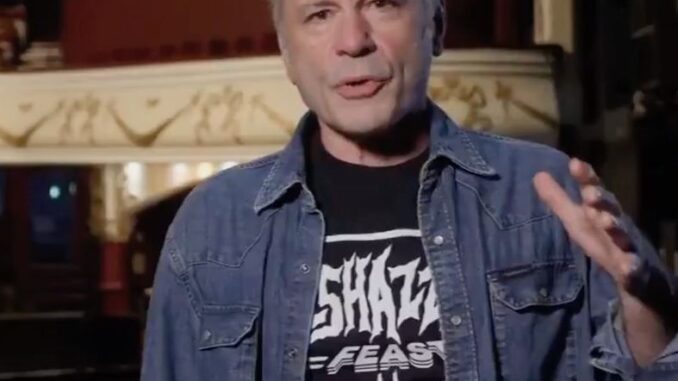
Iron Maiden’s Bruce Dickinson Slams Brexit’s “Catastrophic” Impact on UK Musicians
Bruce Dickinson, the iconic frontman of Iron Maiden and a long-time supporter of Brexit, has publicly criticized the UK government over the ongoing impact of the EU departure on British musicians, calling it a “disaster” for the touring industry.
Dickinson, known for his powerful vocals and outspoken views, was once among the artists who backed Britain’s decision to leave the European Union. However, in a recent interview and public appearances, he expressed frustration over how Brexit has severely disrupted the ability of UK-based artists to tour Europe—one of the most vital income sources for musicians.
“We are one of the UK’s biggest cultural exports, and yet we’re being treated like an afterthought,” Dickinson said. “The red tape, the costs, the restrictions—it’s completely unsustainable for up-and-coming bands.”
Since the UK formally left the EU, British musicians must now navigate a complex and costly web of regulations to perform in EU countries. These include acquiring work permits for individual countries, arranging expensive carnets for transporting musical equipment, and facing strict transport limits for touring vehicles.
While larger bands like Iron Maiden can afford the logistical hurdles thanks to dedicated management teams, Dickinson pointed out that smaller and independent artists are being pushed out of the European touring circuit altogether.
“Elton John was right to call it ‘philistine’,” he said, referring to fellow rock legend Elton John’s harsh critique of the government’s failure to protect the arts post-Brexit. “We were promised freedom, but what we got was a cage for our creative industries.”
Dickinson’s remarks come amid ongoing industry pressure on the UK government to renegotiate touring arrangements with the EU. Campaigns such as #LetTheMusicMove have gained traction, with hundreds of artists, including Radiohead and Dua Lipa, signing open letters demanding action to remove costly touring barriers.
According to UK Music, 82% of musicians who previously toured in the EU have lost work opportunities or income since Brexit took effect. Many say they have been forced to cancel planned tours, while others have decided to stay within the UK altogether—limiting exposure and earnings.
Critics have pointed out the irony in Dickinson’s complaints, given his prior support for Brexit. However, the Iron Maiden singer insists his issue is not with the idea of leaving the EU, but with how the exit was handled.
“I believed in the principle of Brexit. But what we got was incompetence,” he said. “There should have been sensible provisions for musicians and artists. Instead, we were left out in the cold.”
As pressure mounts on political leaders to fix what many see as a gaping hole in the Brexit deal, Dickinson’s voice adds weight to the growing chorus of cultural figures calling for change. Whether the government will respond remains uncertain—but for now, the stage across Europe remains harder to reach for British musicians than ever before.



Be the first to comment